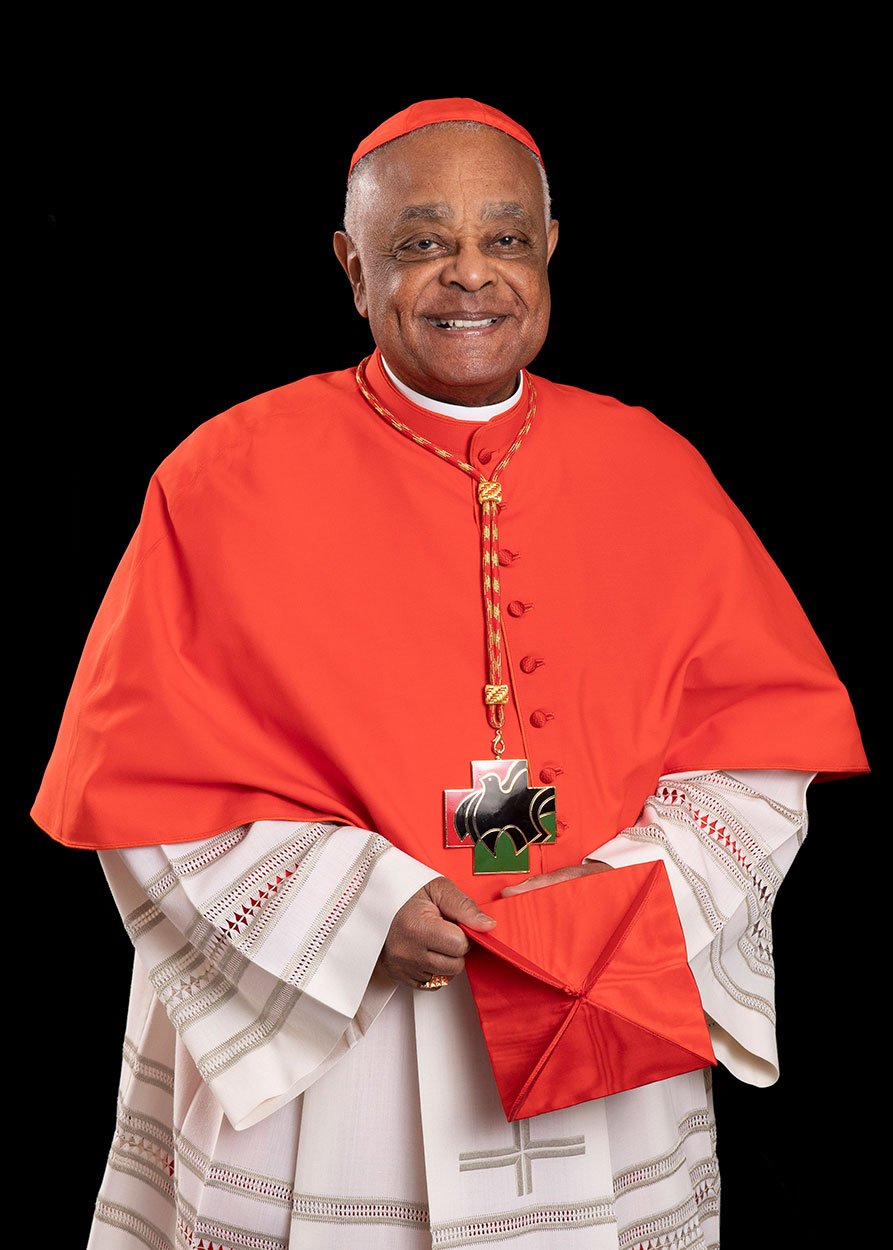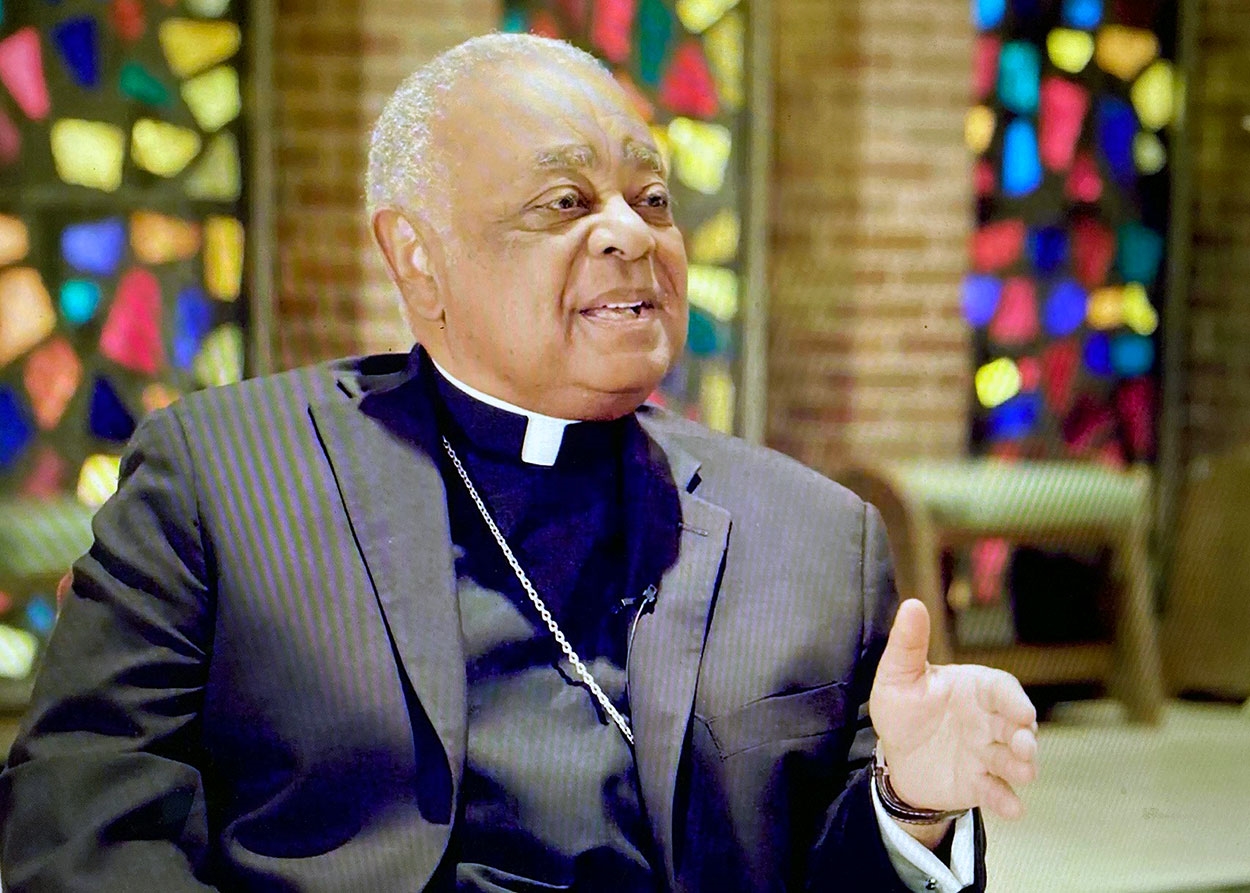Cardinal Wilton Gregory on making history, praying with people who are different than you and what gives him hope
As the first Black cardinal in the United States, Cardinal Wilton Gregory is a trailblazer. However, he doesn’t want anyone to misunderstand what that means.
“I’m not just the cardinal for the Black community: I’m the cardinal for whatever communities I’m in,” he said ahead of his visit to the Archdiocese of Seattle for the Black Catholic Advisory Circle Conference.
The leader of the Archdiocese of Washington talked with Northwest Catholic about everything from faith and race to “Jeopardy!” and the progress he’s seen over 51 years as a priest.
This interview has been edited for length and clarity.
The purpose of the Black Catholic Advisory Circle’s conference is “to bring about a vision for unity in the Catholic Church that is inclusive of all God’s children, especially people of color.” What does that look like?
This is an age-old challenge from the beginning of the church’s existence. How does the church become truly Catholic, truly inclusive? It was one of the first issues that the apostolic community had to deal with: How can this group of primarily Jewish folks welcome the Greeks, the Romans, while expanding into other cultures and nations?
How do we open ourselves up to receive the gifts and the presence of people with whom we don’t share an awful lot, but we do share the faith of Christ? That’s the link that draws us together.
[We also should] recognize the gifts that other people bring. They should be like themselves, with their talents, their gifts and their limitations. No one comes to the table fully formed, but we come to the table to allow the gifts and the presence of other people to help form us into one family.
The other thing is the investment we should have in our young people. We just finished the Olympics. We saw young people [with] an openness to others. I want to emphasize the importance of using our young people as the springboard to a better future. I just think that’s the way we grow. And that’s the way that God wants us to grow.

You’ve been a priest for 51 years. What progress have we made in that time?
I would say we’ve made progress in being able to peer into each other’s lives, in terms of social media. It allows us to peer into each other’s lives and to get into each other’s mess. And that’s a blessing. It’s also a curse — because bigotry is passed on and it's linked to the past, and sometimes bigotry blinds us to tomorrow. It says that the whole story is captured in what happened yesterday, and in doing so, it closes us off to what might happen tomorrow. How can we face tomorrow together without being linked or anchored to yesterday?
In a lot of dioceses, some of the most vibrant parishes are those that include people from all kinds of different backgrounds. We learn each other’s music; we look down the pew and see people who don’t necessarily look like me but who believe like me — and that’s a great gift.
Why are we as a church still struggling to recognize that we are all one family?
I think we’re still struggling because we’ve been too influenced by the public discourse. There are things now said in the public arena that would never have been tolerated before. We came from families where we were fortunate to have parents or grandparents who would say, “Young lady, we don’t say those things in this house.” But now our public discourse has grown so coarse, so brutal and, unfortunately, that brutality, that incivility has crept into our Church.
Instead of the Church being the vehicle for morality and moral vision, sometimes the church just decides to get into the mud and play around with the things that are out there in other venues instead of being a leader. We’ve been become infected.
Are there any joys in being the only Black cardinal in the United States? What are the challenges?
Well, there are joys obviously. Once I was named to the College of Cardinals [in 2020] and had the experience of being held up as the first African American cardinal, when I would go into communities both here in Washington, D.C., and around the country, I would hear, especially from older Black Catholics, this phrase: “Honey, I never thought I’d live to see the day.” It would bring tears to my eyes because those people have clung to the faith, hoping that they would see progress. For many of them, I represent progress.
Friends from my first parish saw “Jeopardy!” when I was the answer to one of the questions. And Delores, the mother of that family, emailed me and said, “Wilton, you really made it. You made ‘Jeopardy!’”
Certainly, I’m honored to be the first African American cardinal, but it brings with it the challenge to remind people that I’m not just the cardinal for the Black community: I’m the cardinal for whatever communities I’m in. I can’t be put into a box. That doesn’t allow me to assume the pastoral responsibilities that belong to me because I am a priest.

Do you have a favorite prayer?
The Our Father. It is the prayer that the Lord entrusted to us, and I presume it’s the prayer that he himself crafted, used and then passed on to his disciples. So that’s my favorite prayer.
If I had to have a second prayer, it would be the rosary because it links us to the mother of God in a very familial way. We, like most kids, say over and over, “Mom, mom, mom, mom,” and that’s how we relate to the woman who is mother of the Church, our own mother.
What gives you hope for our Church and our world?
It's experiences like this [conference] that I can share in with other communities of faith, the community in Seattle.
Black Catholic Advisory Circle Conference
The Black Catholic Advisory Circle is hosting a conference, “The Holy Spirit Unifies All God’s Children as Family,” Nov. 15-16 at St. Stephen the Martyr Parish in Renton.
The conference will focus on unity as a spiritual tapestry woven from diverse threads of faith, culture and shared purpose.
Learn more at bcacseattle.org.
This article appeared in the October/November issue of Northwest Catholic magazine. Read the rest of the issue here.